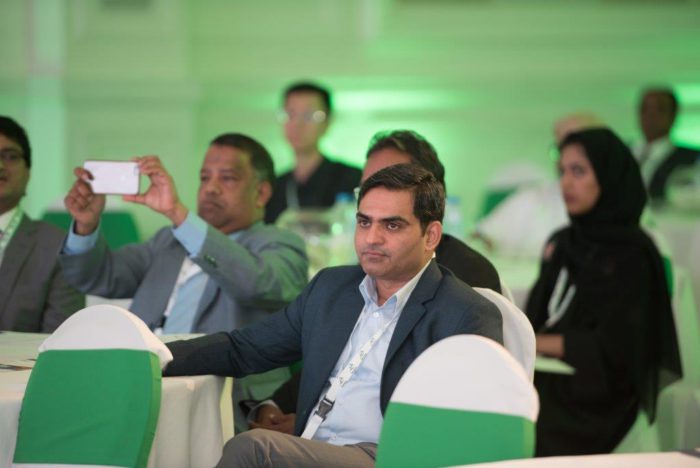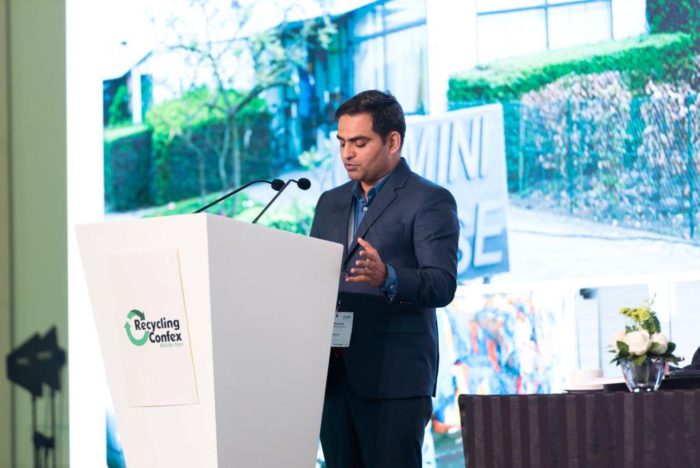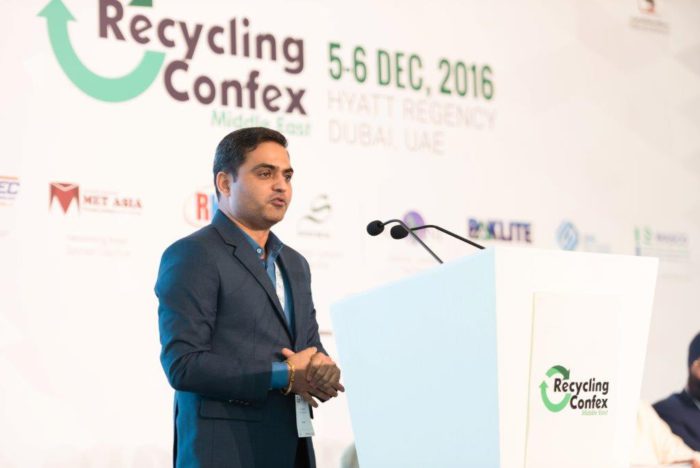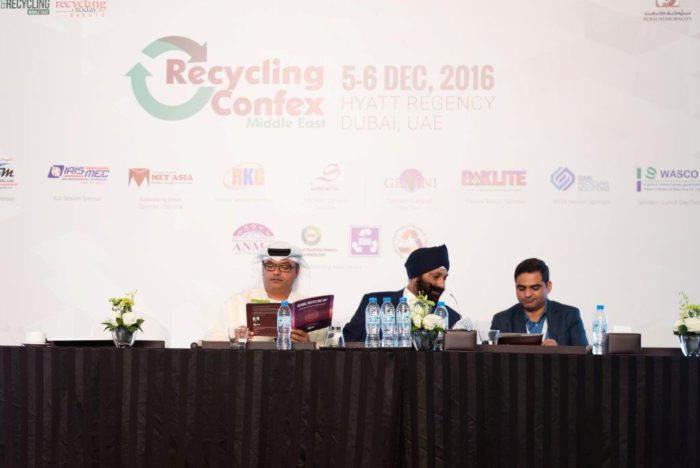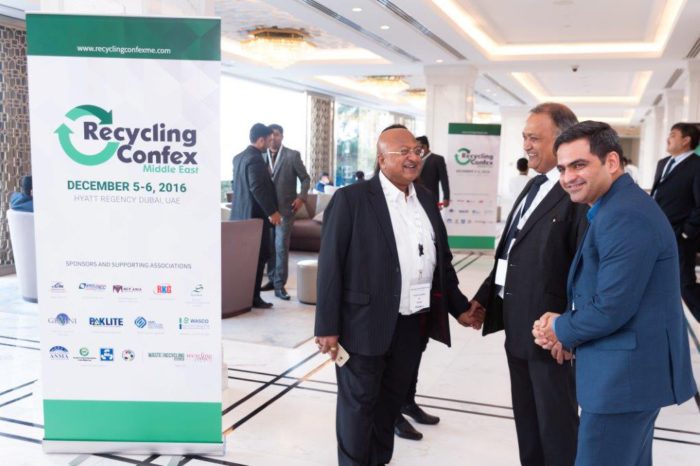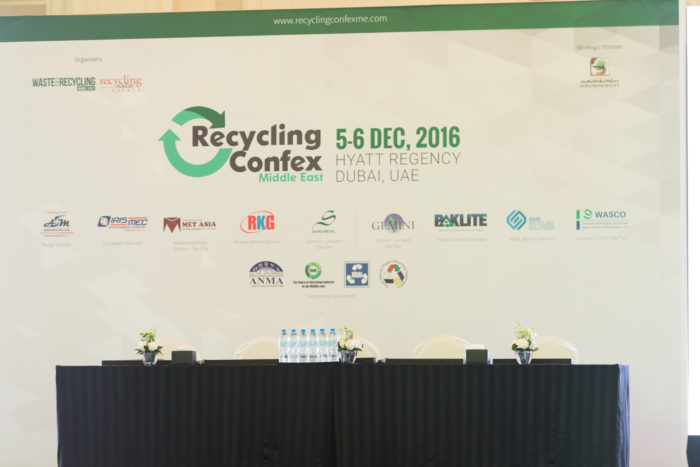
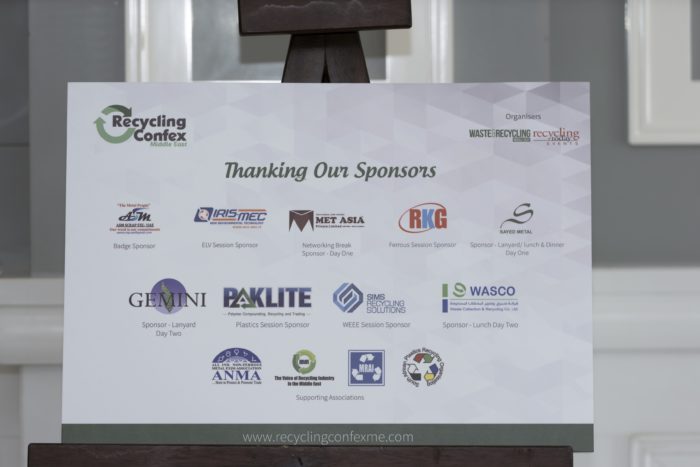
Government recycling targets and corporate sustainability initiatives are helping to keep
plastic recycling viable, although the public's participation can be lacklustre. Presenters
at the plastics recycling session at the 2016 Recycling Confex Middle East, which took
place in Dubai, United Arab Emirates (UAE), in early December, said motivating the
wider public remains a challenge in many recycling endeavours.
While government policymakers and many manufacturers are backing increased
plastics recycling, Surendra Borad of Belgium-based Gemini Corp., who also serves as
chair of the Bureau of International Recycling (BIR) Plastics Committee, said there is
still an important stakeholder to bring on board: the wider public. “We have to change
the mindset,” said Borad. “The most difficult part is we have to start at the grassroots
level—the public.”
Dr. Steve Wong, managing director of Hong Kong-based Fukutomi Co., said media
coverage in China is like that in much of the rest of the world in portraying plastic scrap
as a problem material rather than a recycling opportunity.
Regulations to handle plastic scrap in China have tightened, said Wong, with recyclers
there needing an environmental permit to import plastic scrap “or you will be put in jail,”
he stated. Wong said there are some 86 different laws, regulations, directives and
guidelines in China that apply to plastic scrap recyclers.
Some China-based plastic scrap reprocessors have moved their operations to
neighbouring nations such as Malaysia, Thailand and Vietnam, although Wong
predicted that regulations there will eventually “emulate China.”
In South Africa, laws encouraging plastic recycling have been passed and companies
like Coca-Cola are using recycled-content plastic. Still, “bad press” surrounding plastic
litter remains a problem, said Annabe Pretorius, general manager of the South African
Plastics Recycling Organisation (SAPRO).
Nonetheless, Pretorius said about 310,000 tonnes of plastic scrap was diverted from
landfills in South Africa in 2015, with about 59% of that being postconsumer plastic,
including beverage bottles and plastic films. “Still, there is a vast amount that we don’t
recycle,” she stated.
Sridhar Rao of the Saudi Arabia-based Creative Recycling World Company said
awareness of plastic recycling in the Gulf Cooperation Council (GCC) region “has to
start at the school level,” and that the region could benefit from the formation of a plastic
recycling association “to increase awareness and solve the problems of the industry.”
Rao said plastic currently makes up from 12% to 16% of the municipal solid waste
(MSW) stream in the Middle East. He estimates that Saudi Arabia recycles about 10%
of its PET (polyethylene terephthalate) bottles, a figure that is representative of the
opportunities to increase recycling rates in the region.
Anastasios Bereketidis of German-based Tomra Sorting Solutions said PET beverage
bottles have become, globally, one of the most commonly recycled types of plastic
scrap, and said “maybe there is a potential for what has happened with PET in the last
five years” to be emulated with other types of plastic scrap.
Bereketidis provided an overview of plastic scrap sorting technologies. He said optical
units that can sort with 99% accuracy are being designed and built to operate at
increasingly larger capacities. In the Middle East, said Bereketidis, “We all need to
contribute to the reduction of plastic sent to the landfill. I think there is big potential for
us.”
